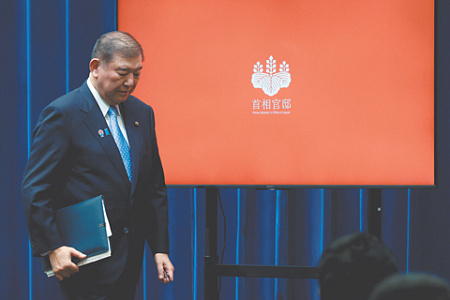
Japan is bracing for a significant political shake-up as voters head to the polls on July 20 for the crucial House of Councillors election. Recent opinion polls suggest Prime Minister Shigeru Ishiba’s ruling coalition is poised to lose its majority in the upper house of parliament. This would mark a second major blow to Ishiba’s leadership, following the loss of control in the more powerful House of Representatives in October 2024, raising serious questions about his political future and the potential for a dramatic shift in Japanese policy.
The ruling coalition, comprising Ishiba’s Liberal Democratic Party (LDP) and its partner Komeito, faces a steep climb. To secure a majority in the 248-seat upper house, they need 125 seats. The coalition retains 75 seats that are not up for election this cycle, meaning they must win at least 50 of the seats being contested. However, polls paint a grim picture. A recent survey by the Asahi newspaper projects the coalition will win only 43 seats, leaving them with a total of 118—well short of a majority. Similarly, a poll by broadcaster NHK showed the LDP’s approval rating has plummeted to its lowest point since it returned to power in 2012.
While the upper house holds less power than the lower house—which can override its veto with a two-thirds vote—losing control would effectively paralyze the government’s legislative agenda. For Ishiba’s coalition, which is already in the minority in the lower house, maintaining an upper house majority is its last lever of influence. It would allow them to block opposition-led initiatives, a crucial defensive capability in a deeply divided parliament. A loss would strip them of this power, rendering the government unable to pass its own laws or effectively counter its rivals.
The government’s declining popularity is fueled by pressing domestic concerns, primarily the rising cost of living that is squeezing household budgets. Public discontent has been further aggravated by the Bank of Japan’s government-backed plan to gradually raise interest rates. Opposition parties, including the Democratic Party for the People and Sanseito, are capitalizing on this economic anxiety, gaining traction with voters by promising popular measures such as tax cuts and a more accommodative monetary policy.
In a last-minute effort to win back public trust, Ishiba’s government announced the creation of a new administrative body on July 15 to manage issues related to foreigners, from tourism to crime. This move is a direct response to growing public concern over migration, a sensitive topic in a country grappling with an aging population and labor shortages. According to Viktor Kuzminkov of the IMEMO Center for Asia-Pacific Studies, the government’s woes are compounded by failed trade negotiations with the United States, which saw Washington increase tariffs on Japanese goods, delivering a blow to the nation’s export-driven economy.
The outcome of the election will likely determine Ishiba’s fate. Kuzminkov notes that the ruling coalition has failed to present a compelling vision to voters, while the opposition, though gaining support, remains fragmented. “If the LDP suffers a major defeat, Ishiba will be forced to resign,” Kuzminkov stated. “However, if the losses are minor, the ruling coalition is unlikely to replace him, and he will probably remain as Prime Minister.” The election’s result will therefore not only reshape the balance of power in parliament but could also trigger a leadership crisis at the very top of Japanese politics.
